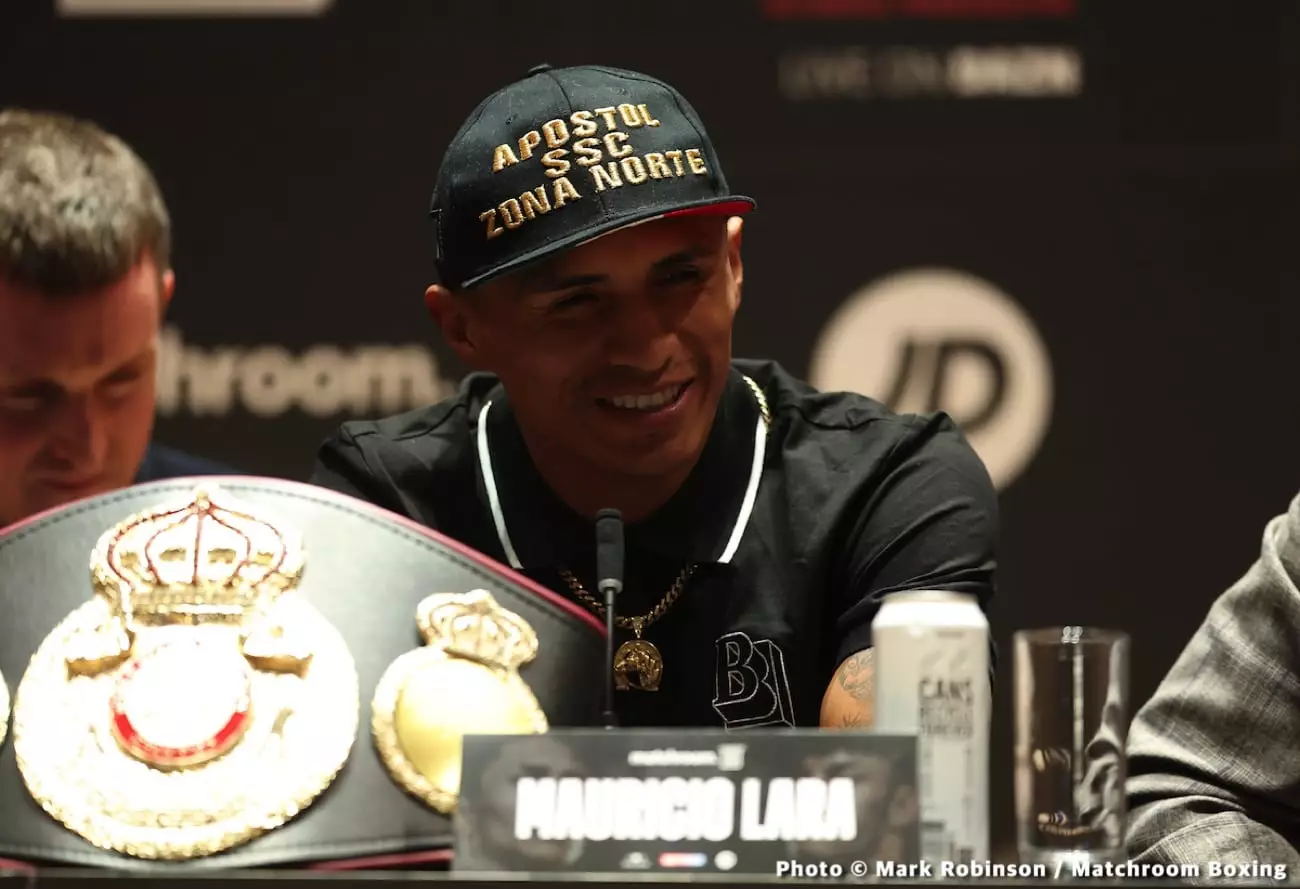It appears that the combat sports world is embroiled in yet another controversy regarding performance-enhancing drugs. This is not an isolated incident—numerous high-profile athletes have faced similar allegations, creating a cloud of distrust over the integrity of the sport. The latest scapegoat is Mauricio Lara, a once-promising Mexican boxer, who has recently failed a drug test, stirring up questions about ethics in professional boxing and the never-ending battle against performance enhancers.
The news broke when it was revealed Lara tested positive for betamethasone, a glucocorticoid banned in competition. This revelation has sparked outrage among boxing fans and commentators alike. While one might argue that the occurrence of such news is cyclical in nature, the frequency with which it appears raises red flags about the culture surrounding elite sports. The case of Lara, particularly, paints a disappointing picture of a sport that thrives on honor, skill, and respect, but seems to frequently succumb to the shadow of underhanded choices.
The Fallout from Lara’s Positive Test
The implications of Lara’s positive test result extend beyond mere statistics. It is not just Lara who suffers; the entire sport feels the consequences of a sullied reputation. The boxer, stripped of his WBA featherweight title after failing to make weight—coming in at an alarming 129.8 pounds for a limit of 126—was already under scrutiny. His return match against Leigh Wood—a fighter who had previously endured a knockout at Lara’s hands—only served to amplify the discord surrounding Lara’s circumstances. This was more than a fight; it was a battle for legitimacy, now overshadowed by allegations of cheating.
It is important to recognize the broader implications here. The users of performance-enhancing drugs don’t only cheat themselves; they rob their competitors of a fair fight, as well as tarnishing the credibility of the championship titles. The potential for a win to be invalidated because a fighter was under the influence of banned substances brings into question the integrity of all outcomes. What if Lara had won? Would the calls for justice be louder, or would they simply be drowned in collective apathy? The sporting world seems to oscillate between outrage and acceptance, creating a desensitized audience that barely blinks at the latest doping scandal.
The Dangers of a Culture Embracing Shortcuts
It’s crucial to understand the psychological pressure surrounding athletes to perform at an elite level. Fighters like Lara are often under immense scrutiny and pressure from fans, promoters, and the industry at large to succeed. This relentless pursuit of victory is exacerbated by the temptations of shortcuts offered by performance enhancers. However, instead of framing this as a victimless crime, we must consider the long-term implications for the sport and its participants.
Lara’s recent suspension for two years—active from March 2024—along with his prior offenses raises questions about accountability. The revelation that he had undergone a shoulder injection before his rematch with Wood, which was intended for injury relief, complicates the narrative. While some may claim ignorance regarding the rules, it doesn’t absolve Lara from responsibility. What is more pressing is how readily these shortcuts are accepted—even appreciated—within certain circles of the boxing community.
Reflecting on Integrity and Future Consequences
Lara, now just 27 years old, has a record of 28-3-2, and at one point was considered one of the most exciting fighters in his weight class. Unfortunately, the narrative surrounding him has shifted from a tale of perseverance to one of betrayal—a cautionary story for aspiring athletes. As inquiries about doping continue to dominate headlines, the responsibility rests on organizations like UKAD to enforce stringent penalties that exemplify that cheating will not be tolerated.
Fostering a culture of accountability in boxing is critical. Addressing the normalization of performance-enhancing drugs is not just about disciplinary actions, but about reshaping the collective mindset within the sport. Coaches, promoters, and athletes alike must be part of this conversation to preserve the sanctity of competition. Boxers like Lara must confront their actions, not just for their careers, but to inspire the next generation of fighters to achieve greatness without compromise. In an era where honor in sport is increasingly questioned, it is imperative that the boxing community takes a proactive stance against the deterioration of its very essence.

